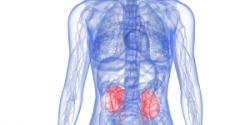Urinary Bladder Cancer Treatment in Israel

Most bladder cancers develop in the urothelium (the bladder’s innermost layer). Left untreated, the disease tends to metastasize into bones, lungs, and/or liver.
Bladder Cancer Causes & Symptoms
It's believed that the main cause of bladder cancer is exposure to carcinogenic substances (aromatic amines, certain industrial chemicals and diesel fumes), which reach the bladder mucosa via urine.
Additional risk factors for bladder cancer are:
- Smoking
- Age and gender (most bladder cancers patients are men over 55)
- Family history
- Congenital bladder defects
Early symptoms include hematuria (blood in urine), and frequent and painful urination. Anuresis (inability to urinate), lower-back pain, fatigue and bone pain may appear in more advanced stages.
The disease is usually diagnosed by means of cystoscopy with biopsy of the tumor.
Sample Program
Diagnostics:
- Lab tests: Extensive blood tests, including tumor markers, general and microscopic urinalysis, and urine culture
- Computerized tomography (CT) urogram (with and without FDG)
- Renal scintigraphy (DMSA, MAG-3)
- Cystoscopy + Biopsy
- Oncological urologist consultation
When performed at Assuta Hospital, these investigations can be completed within 4 business days.
Treatment:
Your treatment program will depend on the outcome of the aforementioned investigations.
Option 1:
Providing the tumor is localized to the bladder and does not penetrate its walls, therapy will include a TUR surgery (transurethral resection) followed by 6 weeks of intravesical therapy. Cost includes express histopathology and 2 days of hospitalization. You will need to remain in Israel for 5 days following your discharge.
Intravesical therapy consists of 6 BCG or Mitomycin injections. The injections can be performed on an outpatient basis (including at your country of residence).
Option 2:
If the tumor is found to have penetrated the bladder wall, and mets into the pelvic cavity are suspected, the TUR surgery will be followed by a full course of chemotherapy. It will be followed checkup is performed to assess reaction to treatment. When necessary, a second surgery (radical cystectomy with ileal conduit urinary diversion) is performed. During this operation, surgeons reconstruct the patient’s bladder (usually from their small intestine).
Please note that chemotherapy can be performed at your country of residence.
Cost of procedure includes 9 days of hospitalization, histopathology, and post-operative follow-up by the operating surgeon. You will need to remain in Israel for 5 days following your discharge.
Option 3:
Providing the tumor does not invade the pelvis, but has spread along a ureter, TUR with distal ureterectomy and re-implantation will be performed (in the absence of contraindications). If pelvic mets are suspected, an operation to remove the tumor(s) will be scheduled, followed by a 6-week-long intravesical chemotherapy course, with ureteroplasty taking place after its completion.
Cost of procedure includes 5 days of hospitalization, histopathology, and post-operative follow-up by the operating surgeon. You will need to remain in Israel for 10 days following your discharge.

















 Toronto:
Toronto:  London:
London: 



